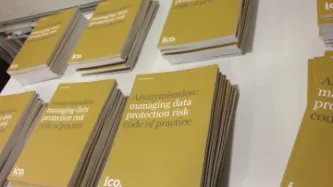Search
Content type: Examples
Hours before OpenDemocracy filed suit to compel the UK government to release all the contracts governing its deals with a list of technology firms including Amazon, Microsoft, Google, Palantir, and Faculty, the UK government released the contracts. Faculty is being paid more than £1 million to provide AI services for the NHS, and the companies involved in the NHS data store project, including Faculty and Palantir, were originally granted intellectual property rights and were allowed to train…
Content type: Examples
On March 20, the UK's Department of Health and Social Care published a notice providing legal backing for the NHS to set aside the duty of patient confidentiality as part of its response to the COVID-19 pandemic. As long as it is to fight the coronavirus, NHS organisations and GPs may share whatever patient data they deem necessary.
Source: https://twitter.com/halhod/status/1245297265054367744/photo/1
Writer: Hal Hodson
Publication: Twitter
Content type: News & Analysis
We very much welcome today's announcement by Health Secretary Jeremy Hunt that people will be allowed to opt out of having their medical records shared in the NHS England centralised information bank.
The move is an important one for data privacy and patient choice, and has been a key objective of Privacy International in our collaboration with the new medConfidential (which launched yesterday). A month ago, NHS England (and the Director of…
Content type: News & Analysis
Privacy International welcomes the news that the UK NHS Data Spine is being replaced. We have fundamental privacy concerns about the existing infrastructure, and the proposed changes have the potential to enable the necessary privacy protections to be implemented in a meaningful way.
Core elements of the NHS Spine, the technological infrastructure underpinning the Service that cost the Government over £12 billion pounds, will be have to be replaced after numerous failures. The…
Content type: News & Analysis
A full analysis of the UK Information Commissioner's "Anonymisation code of practice: managing data protection risk" will take time and working knowledge of how the code is used in practice.
At the launch, the ICO signalled that while they believed the code was now up to scratch, they were open to additions and clarifications given that it is the first document of its kind in the world. We applaud them for this; the code is likely to be copied internationally, so it is particularly…


